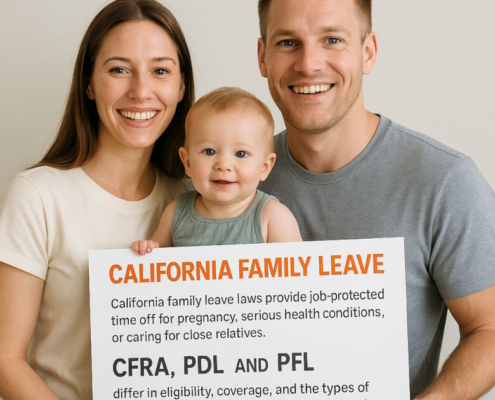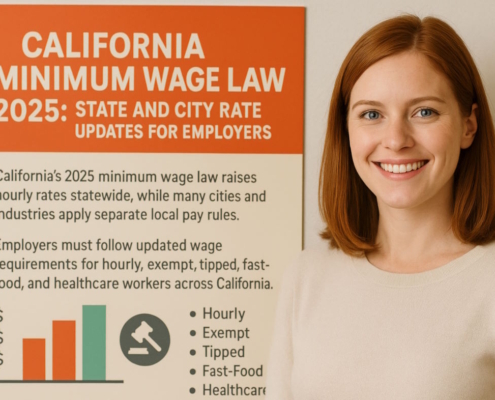What are the steps to take medical leave from work?
You can be qualified for FMLA benefits in California if you’re an employee and require time off due to a major health issue or the care of a family member who has a serious health condition. To request FMLA leave in California, follow these steps.
1. Find Out If You Qualify for Family and Medical Leave Act (FMLA) in California
Verify your eligibility for FMLA leave before submitting a request. You need to have put in at least 1,250 hours of work for your company in the twelve months leading up to your leave request in order to qualify. In addition, there needs to be a minimum of fifty individuals working for your employer within a 75-mile radius.
2. Provide Prior Notice
It is imperative that you provide your employer with ample notice when requesting FMLA leave. Give your employer 30 days’ notice if you anticipate needing time off. Notify your employer immediately if your leave of absence is unexpected.
3. Get the right paperwork
The FMLA leave request form could be different for each company. Get in touch with your company’s HR department to get the necessary paperwork. There are FMLA forms available from the Department of Labor that you can use if the ones your employer provides aren’t enough.
4. Complete the paperwork
Make sure you give full and correct information regarding your leave request when filling out the FMLA paperwork. Be sure to mention any important information, such as your or a family member’s health condition, the anticipated length of your leave from work, and anything else that may be relevant.
5. Send in your paperwork
Send the completed paperwork to the HR department at your place of employment. For your personal records, please keep a duplicate of the forms.
6. Check in
Contact your employer again after you’ve submitted your FMLA request to check on its status. You can expect to hear back from your boss about the status of your request (accepted or denied) within five working days.
7. Know what your rights and duties are
Before you take Family and Medical Leave Act (FMLA) leave, be sure you know your rights and what you need to do. Employees who qualify can take up to twelve weeks of unpaid leave in a twelve-month period to deal with a significant health issue, care for a family member who is really ill, or to give birth or adopt a child, according to California law. You may be required to get medical certification from a healthcare practitioner in order to take FMLA leave for your personal health condition.
Employers are required to keep you covered by health insurance even when you’re out on FMLA leave, and you can expect to go back to the same or a similar job when you get back. The Family and Medical Leave Act does not mandate that your company pay you while you are on leave.
8. Stay in touch
Maintain open lines of communication with your employer regarding your FMLA leave status and plans to return to work. If your anticipated return date changes, or if any information regarding your health or caregiving duties becomes available, you must inform your employer without delay.
9. Go back to your job
Upon completion of your FMLA absence, you are entitled to return to your previous or comparable position. Additional leave may be available to you under the Americans with Disabilities Act (ADA) or California’s Fair Employment and Housing Act (FEHA) if your health prevents you from returning to work.
Following these steps and being aware of your rights and obligations will make requesting FMLA leave in California a breeze. Stay in touch with your employer at all times and know what to do if you can’t go back to work when your leave ends. In this way, you may safeguard your employment and benefits while still taking care of yourself or your loved ones when the time comes.































